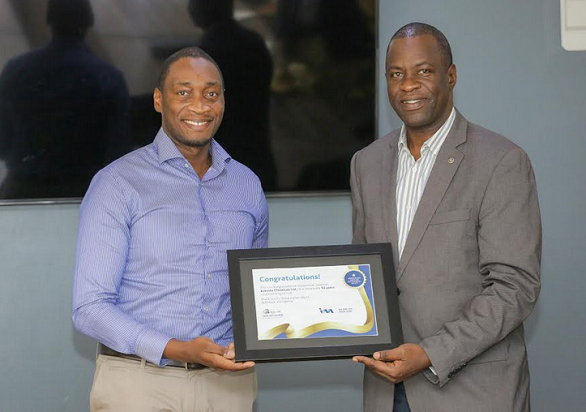P.7 Candidates sitting PLE
Government through the Ministry of Education and Sports has defended the recently concluded electronic registration of students ahead of Uganda National Examination Board (UNEB) final examinations despite concerns by lawmakers that students from the rural schools will be left out due to limited electricity and internet access.
Leading the defending was Denis Obua, Minister of State for Sports during the plenary sitting on Thursday in which he was responding to a question raised by Patrick Nsamba (Kassandra North) on why Government was hellbent on implementing the new electronic registration of candidates for Primary Leaving Examination (PLE), Uganda Certificate Examination (UCE) and Uganda Advanced Certificate Examination (UACE) yet it had proved to be slow and costly for candidates given the limited access to electricity and internet in some parts of the country.
While responding to the question, Obua said that the online registration of candidates isn’t a new system and that it has been used to successfully register candidates since 2015 and it has proved to be faster, more accurate and cheaper system than the manual system that was in use since 2014 because the old system was laborious and required students to fill many forms that head teachers would be required to carry to UNEB, forcing many teachers to spend days camped in Kampala waiting for their turn at UNEB offices to hand in students forms.
“Uganda as a country is embracing e-governance to improve service delivery to our people. Online registration by UNEB is a contribution towards better and cheaper services rendered towards its clients, the schools and its candidates. Indeed the examination centres haven’t indicated a lack of internet access as hindrance to the registration process,” Obua explained.
The Minister further informed Parliament that the online registration system was conducted successfully up to 30th June 2022 and 1,182,073 students were able to register for all the levels of final exams and of these, 647828 constituting 51% are females and 632813 are males.
However, a number of lawmakers like Joseph Ssewungu (Kalungu West), said that the matter was discussed in Parliament’s Education Committee and the lawmakers agreed to have both the Ministry of Education and UNEB to continue operating both the manual and electronic system so as not to cut off students from rural who might not have access to electricity and internet to register
“And we said that because of the constraints you are facing let the two move hand in hand however, UNEB has never taken training of these teachers. That’s why I said that let us have the two move on concurrently for those who can afford to move on and those who can’t like Karamoja used the old system. I have been to Karamoja you hardly find a place with a computer system, ” said Ssewungu.
Veronica Nanyondo (DWR Bukomansimbi) asked the Minister to explain what modalities Government had for rural schools without internet and electricity access.
She said, “The issue of electronic registration, I don’t know if you have followed it in rural areas where you find that in the school there is only one teacher with a smart phone, with no computer and to get data, it is very difficult. There is an extra charge that teachers ask from parents so as to get data. In addition, electricity isn’t there, they can spend a day 1-2 days without battery. What is the Ministry doing for those schools, are you planning anything or they’re going to be left out?”
Fredrick Angura (Tororo South County) informed Parliament that recently some students missed out on registration because they sat for PLE years ago and their data wasn’t in the system, prompting UNEB to reject their forms and therefore urged the Ministry of Education to accommodate the two systems.
However Speaker Among asked MPs to lead the sensitization process of ensuring the electorates embrace the digitisation of Uganda.
“As Members of Parliament, let us move away from analogue to digital, that must be a plan, don’t remain where you’re. We should be thinking of how to help our country go digital,” she said.





